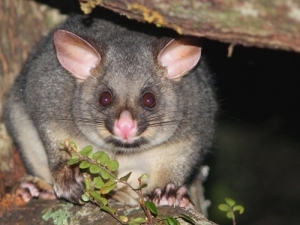NZ kiwifruit sector on alert for mysterious Italian disease
New Zealand's kiwifruit industry is on alert following reports of a mystery disease that is sweeping through Italian orchards.
 UCLA is urging residents to take advantage of a new funding option to support individuals working independently on killing animal pests on their properties.
UCLA is urging residents to take advantage of a new funding option to support individuals working independently on killing animal pests on their properties.
UCLA is urging residents to take advantage of a new funding option to support individuals working independently on killing animal pests on their properties.
The Upper Coromandel Landcare Association (UCLA) is campaigning to draw attention to recent changes to Waikato Regional Council's small-scale community initiatives fund, which is part of the council's natural heritage programme.
The council's funding policy now includes one-off grants for individuals, in addition to organised community groups. Clarification of funding policy reveals that grants are available for work on uncovenanted, as well as covenanted properties.
The regional council fund supports purchase of materials such as traps and bait stations. Grants are capped at $5000 per application, of which up to $1000 may be for contracted services.
UCLA spokeperson Reihana Robinson, who advocated as representative on WRC's Coromandel catchment committee for the changes to the council's funding policy, says the funding option for individuals on uncovenanted land is a big step forward for protecting vast additional areas of bush on the peninsula.
"Many Coromandel residents have been working independently, off their own bat and in their own time and at their own expense, to protect and enhance our ecosystems and natural environment. These conservationists deserve the same financial support from council that is afforded to groups and incorporated societies," Robinson said.
"As for extending grants to work on uncovenanted properties, most stoats and rats I've met don't stop to check the LIM report on a bush block before killing a nestling. All our bush heritage merits the same protection and support."
Applications are now being accepted by WRC until March 21. The application form is downloadable from the regional council website or can be requested from Dave Byers at WRC in Hamilton.
The World Wide Sires National All Day Breeds Best Youth Camp Best All Rounder plaudit has become family affair, with 2026 Paramount Cup winner Holly Williams following in her sister Zara's footsteps.
DairyNZ is giving New Zealand farmers a unique opportunity to gain hands-on governance and leadership experience within the dairy sector.
Herd improvement company LIC has posted a 5.2% lift in half-year revenue, thanks to increasing demand for genetics.
According to the latest Fresh Produce Trend Report from United Fresh, 2026 will be a year where fruit and vegetables are shaped by cost pressures, rapid digital adoption, and a renewed focus on wellbeing at home.
The Roar is a highlight of the game hunting calendar in New Zealand, with thousands of hunters set to head for the hills to hunt male stags during March and April.
OPINION: The past few weeks have been tough on farms across the North Island: floods and storms have caused damage and disruption to families and businesses.